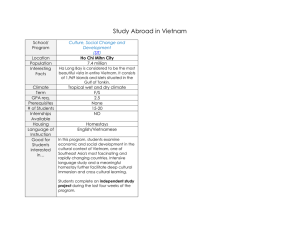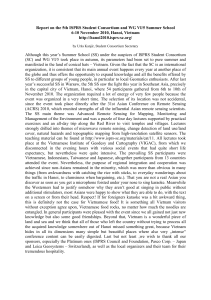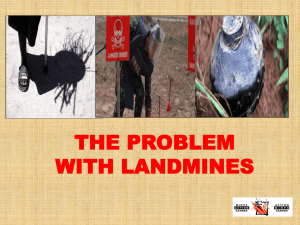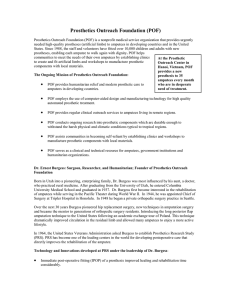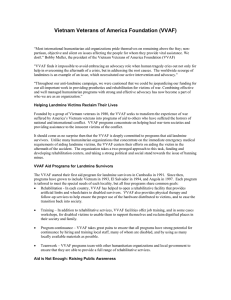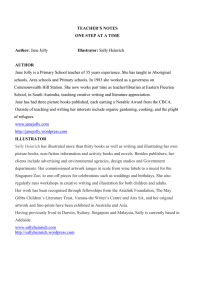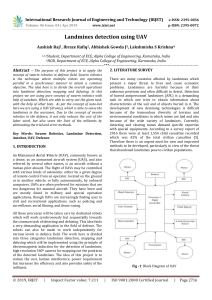TEACHING THEM TO FISH
advertisement
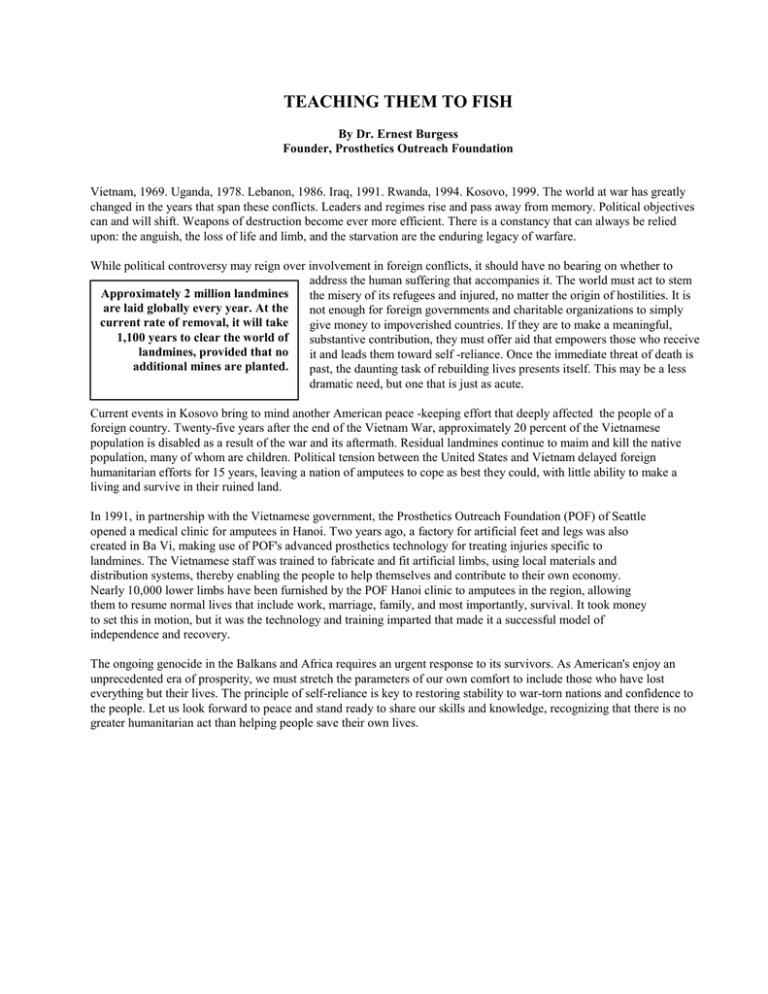
TEACHING THEM TO FISH By Dr. Ernest Burgess Founder, Prosthetics Outreach Foundation Vietnam, 1969. Uganda, 1978. Lebanon, 1986. Iraq, 1991. Rwanda, 1994. Kosovo, 1999. The world at war has greatly changed in the years that span these conflicts. Leaders and regimes rise and pass away from memory. Political objectives can and will shift. Weapons of destruction become ever more efficient. There is a constancy that can always be relied upon: the anguish, the loss of life and limb, and the starvation are the enduring legacy of warfare. While political controversy may reign over involvement in foreign conflicts, it should have no bearing on whether to address the human suffering that accompanies it. The world must act to stem Approximately 2 million landmines the misery of its refugees and injured, no matter the origin of hostilities. It is are laid globally every year. At the not enough for foreign governments and charitable organizations to simply current rate of removal, it will take give money to impoverished countries. If they are to make a meaningful, 1,100 years to clear the world of substantive contribution, they must offer aid that empowers those who receive landmines, provided that no it and leads them toward self -reliance. Once the immediate threat of death is additional mines are planted. past, the daunting task of rebuilding lives presents itself. This may be a less dramatic need, but one that is just as acute. Current events in Kosovo bring to mind another American peace -keeping effort that deeply affected the people of a foreign country. Twenty-five years after the end of the Vietnam War, approximately 20 percent of the Vietnamese population is disabled as a result of the war and its aftermath. Residual landmines continue to maim and kill the native population, many of whom are children. Political tension between the United States and Vietnam delayed foreign humanitarian efforts for 15 years, leaving a nation of amputees to cope as best they could, with little ability to make a living and survive in their ruined land. In 1991, in partnership with the Vietnamese government, the Prosthetics Outreach Foundation (POF) of Seattle opened a medical clinic for amputees in Hanoi. Two years ago, a factory for artificial feet and legs was also created in Ba Vi, making use of POF's advanced prosthetics technology for treating injuries specific to landmines. The Vietnamese staff was trained to fabricate and fit artificial limbs, using local materials and distribution systems, thereby enabling the people to help themselves and contribute to their own economy. Nearly 10,000 lower limbs have been furnished by the POF Hanoi clinic to amputees in the region, allowing them to resume normal lives that include work, marriage, family, and most importantly, survival. It took money to set this in motion, but it was the technology and training imparted that made it a successful model of independence and recovery. The ongoing genocide in the Balkans and Africa requires an urgent response to its survivors. As American's enjoy an unprecedented era of prosperity, we must stretch the parameters of our own comfort to include those who have lost everything but their lives. The principle of self-reliance is key to restoring stability to war-torn nations and confidence to the people. Let us look forward to peace and stand ready to share our skills and knowledge, recognizing that there is no greater humanitarian act than helping people save their own lives.
![vietnam[1].](http://s2.studylib.net/store/data/005329784_1-42b2e9fc4f7c73463c31fd4de82c4fa3-300x300.png)

